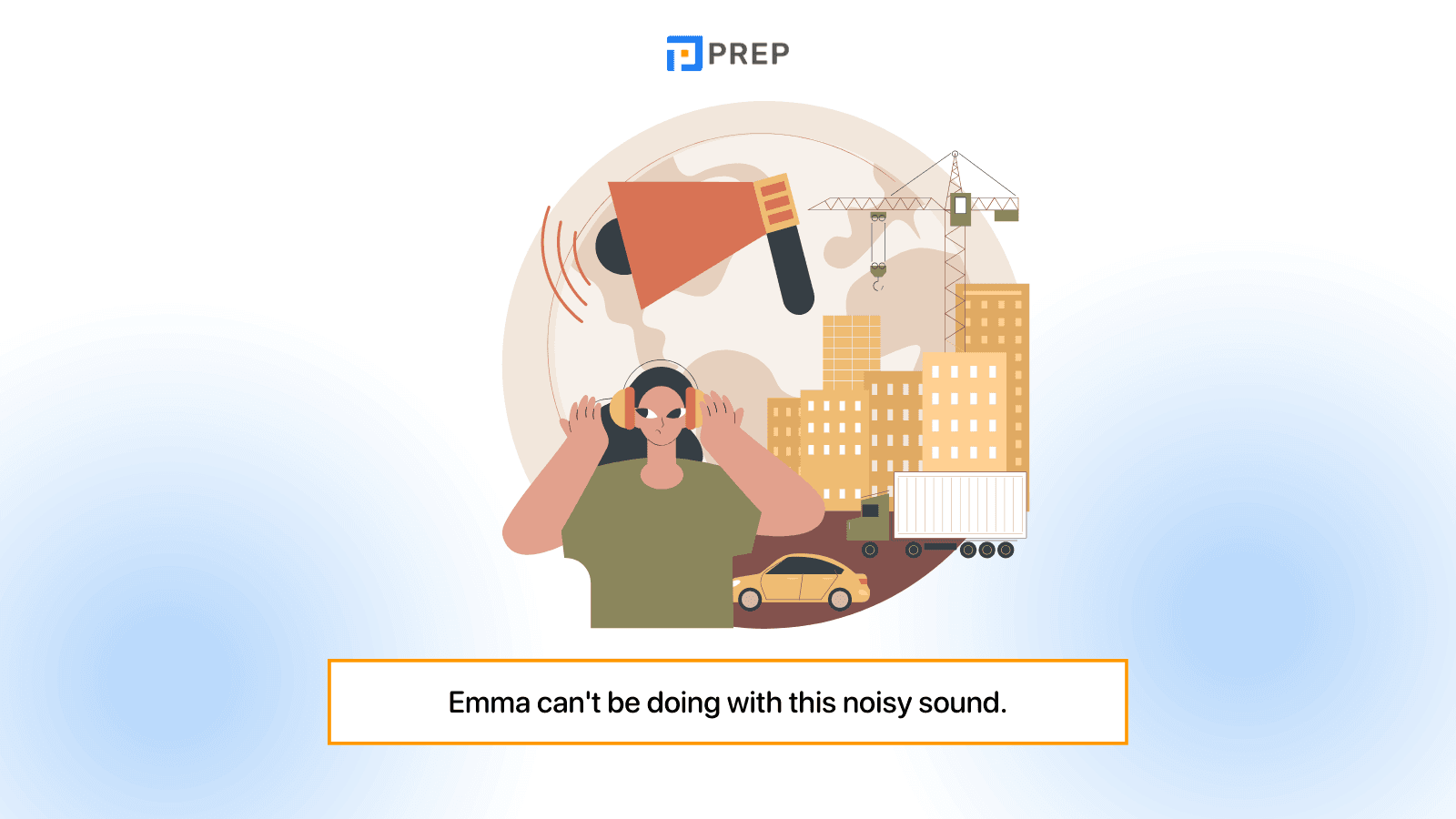Irregular verb in English, past tense of Do: Do - Did - Done
The verb “Do” is one of the most frequently used words in English. Despite its simplicity, it plays a crucial role in both grammar and communication. As an irregular verb, "Do" does not follow standard past tense patterns. In this guide, we’ll take a closer look at the past tense of Do, how it’s conjugated in all 12 tenses, and explore idioms and phrasal verbs that include “Do”.

I. What is Do?
Before diving into its conjugation, it’s important to understand what "Do" means and how it functions.
Do is pronounced /duː/ and depending on the context, “Do” can refer to performing an action, completing a task, or supporting the formation of questions and negatives when used as an auxiliary.
|
Part of speech |
Usage and meaning |
Example |
|
Auxiliary Verb |
Used in questions, negative sentences, or for emphasis in the present simple and past simple tenses. |
Do you like coffee? |
|
Verb |
To perform, execute, or complete a task or action |
I do my homework every day. |
|
Noun |
An action or activity |
The manager asked us to come up with a plan for the do. |

II. What are V0, V2, V3 of Do? The past tense of Do in English
What is the past tense of Do? V0, V2, and V3 are abbreviations for the base form, simple past, and past participle of Do. Let’s take a closer look at the V0, V2, and V3 forms of Do in the table below:
|
Verb form |
Example |
|
|
V0 |
Do /duː/ Does /dʌz/ |
|
|
V2 |
Did /dɪd/ |
|
|
V3 |
Done /dʌn/ |
|
Do past tense and past participle are: Do in past simple is Did and Do past participle is Done. Therefore, Do past perfect is Had Done.

III. Conjugation of the verb Do
To use Do in the past tense correctly, it’s important to know how it appears in various grammatical structures. Let’s examine how it is conjugated across the 12 standard English tenses and how it fits into special sentence patterns, including questions, negatives, and passive constructions.
1. Tenses
From simple past to perfect continuous, understanding where “Do” fits in each tense will help you construct accurate sentences.
|
12 tenses in English |
I |
He/She/It |
We/You/They |
|
Present simple tense |
do |
does |
do |
|
|||
|
Present progressive tense |
am doing |
is doing |
are doing |
|
|||
|
Present perfect tense |
have done |
has done |
have done |
|
|||
|
Present perfect progressive tense |
have been doing |
has been doing |
have been doing |
|
|||
|
Past simple tense |
did |
did |
did |
|
|||
|
Past progressive tense |
was doing |
was doing |
was doing |
|
|||
|
Past perfect tense |
had done |
had done |
had done |
|
|||
|
Past perfect progressive tense |
had been doing |
had been doing |
had been doing |
|
|||
|
Future simple tense |
will do |
will do |
will do |
|
|||
|
Future progressive tense |
will be doing |
will be doing |
will be doing |
|
|||
|
Future perfect tense |
will have done |
will have done |
will have done |
|
|||
|
Future perfect progressive tense |
will have been doing |
will have been doing |
will have been doing |
|
|||

2. In special sentence structures
It is also important to understand how "Do" is used in certain sentence structures, such as the passive voice or with modal verbs. These variations will help you use "Do" more fluently.
|
Special Structure |
I |
He/She/It |
We/You/They |
|
Conditional Sentences |
|||
|
Second conditional - Main Clause |
would do |
would do |
would do |
|
|||
|
Third conditional - Main Clause |
would have done |
would have done |
would have done |
|
|||
|
Subjunctive Mood |
|||
|
Subjunctive expressing present situation |
do |
do |
do |
|
Subjunctive expressing present situation contrary to fact |
did |
did |
did |
|
Subjunctive expressing past situation contrary to fact |
had done |
had done |
had done |
|
Example |
|
||
IV. Phrasal Verbs with Do in English
Beyond its basic function, “Do” also appears in numerous phrasal verbs. These multi-word expressions often carry unique meanings.
|
Phrasal verb with Do |
Meaning |
Example |
|
do away with something |
To abolish, eliminate, or get rid of something |
John suggested we do away with the old filing system and move everything online. |
|
do someone in |
To kill or harm someone, or to make someone extremely tired |
Sarah was so exhausted after the marathon that it really did her in. |
|
do someone out of something |
To cheat or trick someone in order to take something from them or to prevent them from getting something they are entitled to |
Michael believes his colleague did him out of a promotion by spreading false rumors. |
|
do over something |
To redo something because the first attempt was unsatisfactory or not completed well |
Emma wasn’t satisfied with her essay, so she decided to do it over. |
|
do without something/ someone |
To manage or cope without something or someone |
David had to do without his phone for a week after it broke. |

V. Idioms with Do in English
"Do" is also part of many everyday idiomatic expressions. These idioms carry meanings that go beyond the literal use of the word.
|
Idioms with Do |
Meaning |
Example |
|
can't be doing with something |
To be unable to tolerate or deal with something because it is annoying or bothersome |
Emma can't be doing with this noisy sound. |
|
do as you would be done by |
To treat others as you would like to be treated yourself |
Sarah believes in the principle "do as you would be done by" and always treats others with respect. |
|
do something/ nothing for/ to someone |
To provide a benefit/no benefit to someone |
Michael’s new haircut really did something for his confidence. |
|
that does it! |
That's enough! (Used when something has reached an unbearable level.) |
David shouted, “That does it! I’ve had enough of your excuses!” |
|
that'll do! |
That's enough! (Used to ask someone to stop inappropriate behavior or actions.) |
That'll do, Anna! Please just sit down and keep quiet. |
|
that's done it! |
That's it! (Used when someone or something has caused damage or trouble.) |
Tom exclaimed, “That’s done it! Now we’ll have to start all over again!” when he realized the mistake. |
|
what's done is done |
What has happened in the past should be accepted and left behind. |
Sarah tried to comfort her friend by saying, “What’s done is done, let’s focus on fixing it now.” |

VI. Exercises on conjugating the past form of Do with answers
To reinforce what you’ve learned, try completing the following exercises designed to test your understanding of how to use “Did” and “Done” correctly in context. Full answers are provided for easy self-assessment.
1. Exercise: Fill in the correct form of the verb Do in the blanks of the sentences below.
-
I __________ (do) my homework every evening.
-
Emi __________ (do) her chores now, so she can’t come to the phone.
-
They __________ (do) a great job yesterday at the event.
-
By next week, we __________ (do) all the preparations for the trip.
-
John __________ (do) the laundry when I called him.
-
If I had known about the project, I __________ (do) my part on time.
-
We __________ (do) the report by the end of this week.
-
Anna __________ (do) her homework for two hours before she finally finished it.
-
They __________ (do) their chores before the guests arrived.
-
What __________ (you, do) at this time yesterday?
2. Answers
|
|
By the end of this guide, you should have a solid grasp of how to use the past tense of Do. From grammar rules to common expressions, this versatile verb plays an essential role in English communication. Keep practicing with PREP to strengthen your skills and continue expanding your language knowledge!

Hi I'm Chloe, and I am currently serving as an Product Content Administrator at Prep Education. With over five years of experience in independent online IELTS study and exam preparation, I am confident in my ability to support learners in achieving their highest possible scores.
Comment
Premium content
View allPersonalized roadmap
Most read












